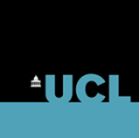Fly away, pretty moth, to the shade
Of the leaf where you slumbered all day;
Be content with the moon and the stars, pretty moth,
And make use of your wings while you may.
* * * * * *
But tho' dreams of delight may have dazzled you quite,
They at last found it dangerous play;
Many things in this world that look bright, pretty moth,
Only dazzle to lead us astray.
Thomas Haynes Bayly, Fly away, pretty Moth; reported in Hoyt's New Cyclopedia Of Practical Quotations (1922), p. 911-17.

